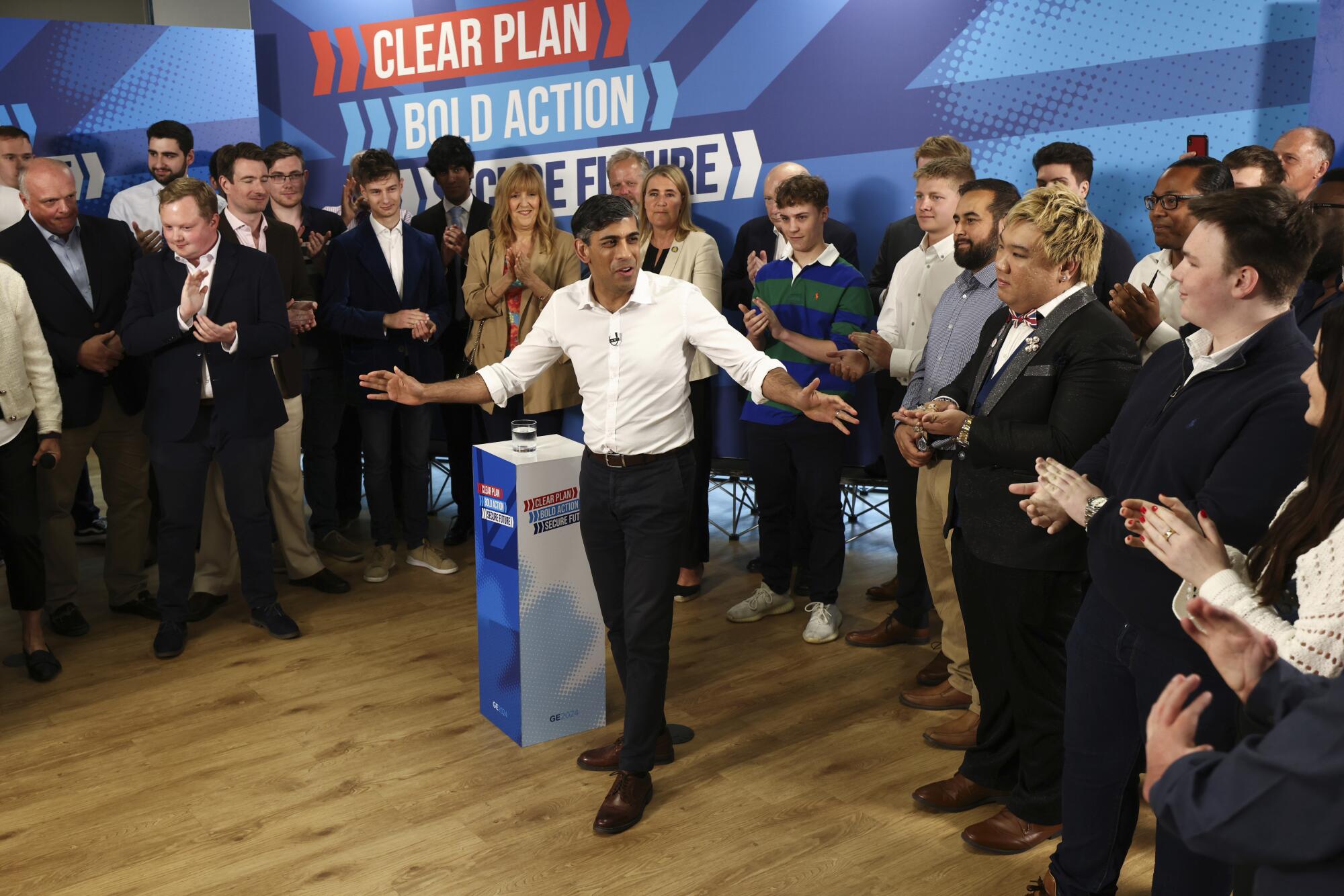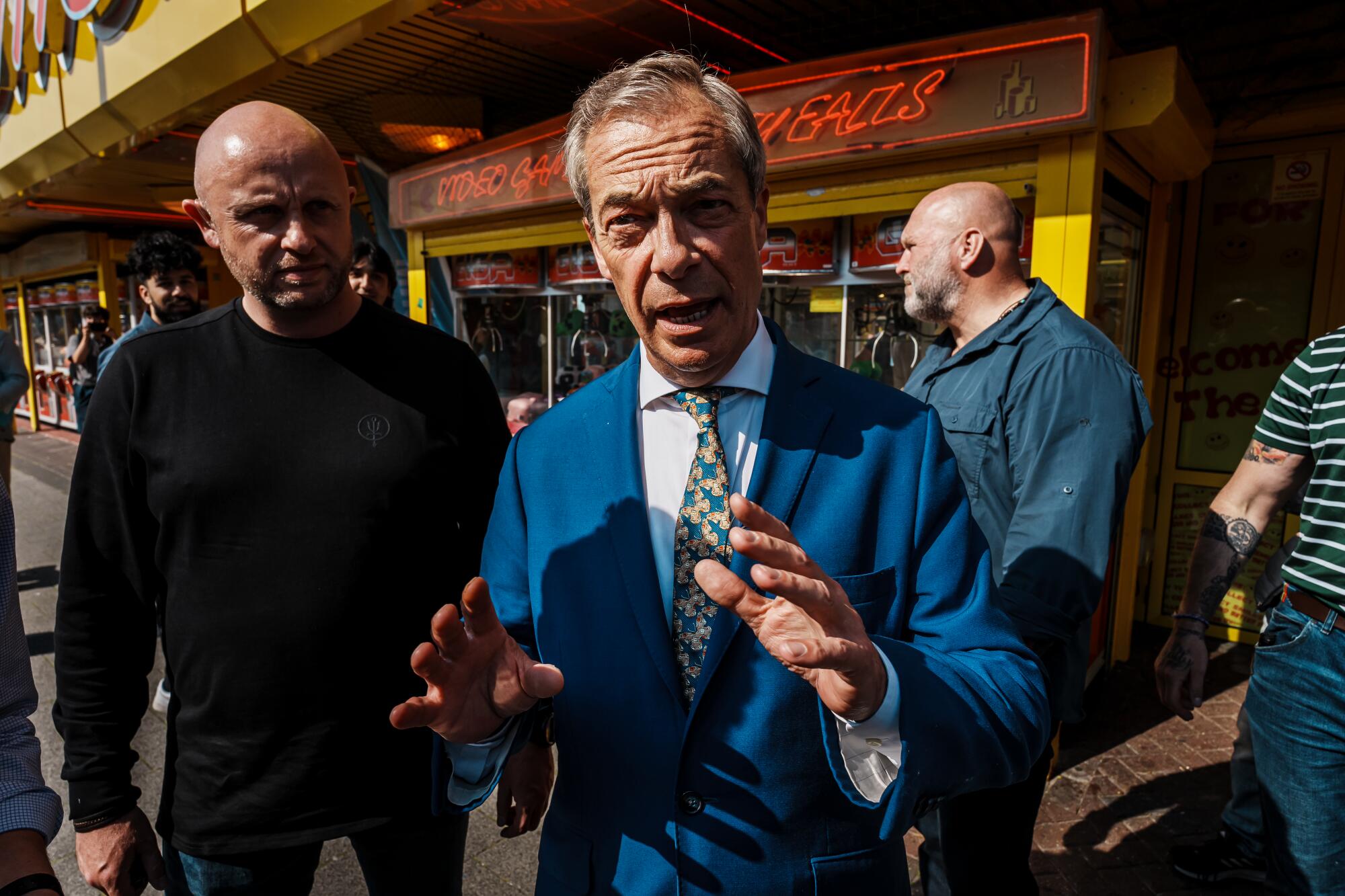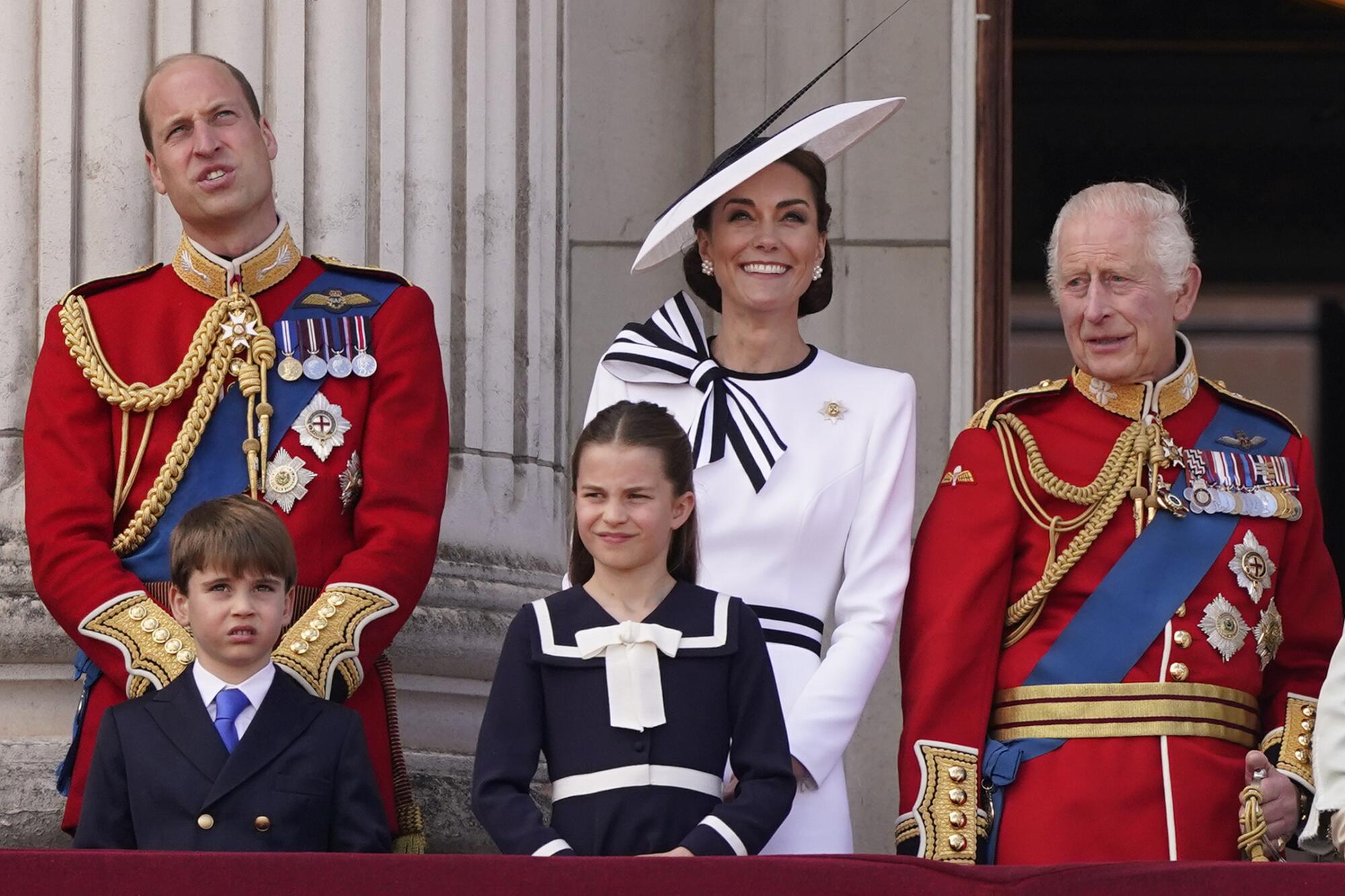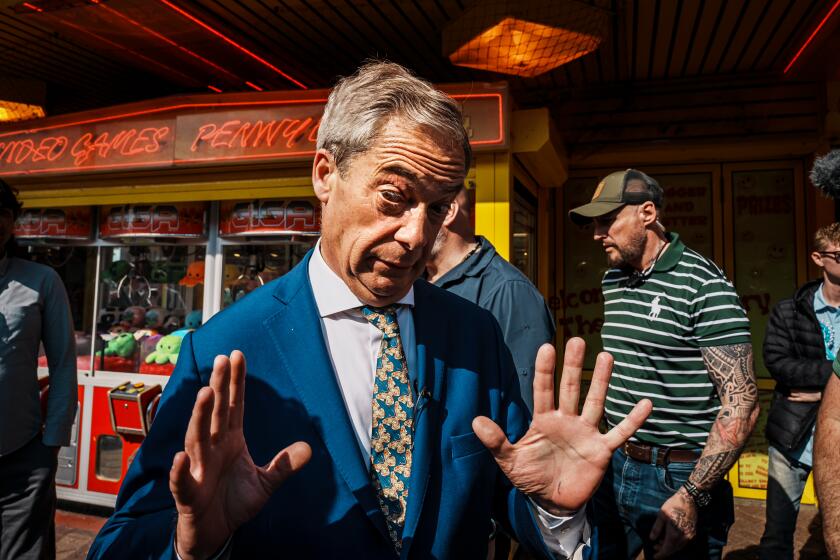
LONDON — On Thursday, British voters appear almost certain to embrace momentous political change, handing the ruling Conservatives what could be a defeat of historic proportions, and casting their lot with the center-left Labor Party.
The widely forecast result — a resounding Labor win — would end Prime Minister Rishi Sunak’s 20-month tenure, and usher in a new government led by Keir Starmer, the 61-year-old head of the Labor Party (spelled Labour by the British.)
What is at stake?
British parliamentary elections must be held at least once every five years. Whichever party, alone or in coalition, can marshal a majority in the House of Commons — currently consisting of 650 seats — forms the next government. Its leader becomes prime minister.

What are the big issues?
Polls suggest the British electorate is most concerned with the cost of living, how to deal with migrants and asylum seekers, and the dire state of the National Health Service, which provides free treatment for all. There are also deep divisions over Israel’s war with Hamas.
Why is the election being held now?
Because Sunak called one. A national poll hadn’t been expected until at least this autumn, and could have taken place as late as January 2025. But the prime minister apparently believed that an easing of inflation — a key voter concern — made it an auspicious moment to hold the election, and also feared that a downward trend in the party’s popularity might only accelerate. So he called it for July 4 — nothing whatsoever to do with Independence Day in the obstreperous former colonies.

How has that strategy worked out?
An early or “snap” election, the thinking went, would at the very least leave Conservatives positioned to serve as a solid, credible political opposition while the party worked to rebuild — and waited for a governing Labor to do things that upset people.
Trump acolyte Nigel Farage, polarizing leader of a far-right party, is running for British Parliament. Could he lead a MAGA-like takeover of Conservatives?
But the Conservatives got an unpleasant surprise relatively early in the short six-week campaign: the re-emergence of political firebrand Nigel Farage and his vehemently anti-immigration Reform party, which quickly positioned itself to siphon off a big share of the Conservative vote.
At one point, polls put Reform within striking distance of tying or even overtaking the Conservatives. But its backing slipped somewhat after some supporters were caught making overt racist slurs.
What went wrong for the Conservatives?
Longevity. Austerity. And Britain’s messy exit from the European Union, even though politicians on all sides have avoided discussing the subject — a reticence waggish commentators have dubbed “Brexit omerta.”
Analysts attribute the lack of campaign discourse surrounding Brexit’s widely acknowledged failure to bring Britain prosperity and prestige to a desire on Conservatives’ part to avoid calling attention to previous overblown promises, and Labor’s wish to not antagonize potential swing voters who back in 2016 had supported leaving the EU.
After 14 years in power, though, Conservatives are also fighting voter dissatisfaction on other fronts. Austerity measures have sapped essential public services, especially the National Health Service, and many young Britons now see home ownership as an almost impossible dream.
European Parliament elections yield victory for centrists, but in France, far-right landslide triggers snap parliamentary elections.
Why is Labor suddenly palatable to voters?
The Labor Party lost big in 2019. Since then, though, it has jettisoned its leader, Jeremy Corbyn, who was tainted by longstanding allegations of antisemitism and widely disliked. The party’s reputation for economic ineptitude faded as dissatisfaction grew with Conservative policies and practices during the pandemic, and after Starmer took the Labor reins in 2020.
What about that other famous British institution?
The election coincides with a rough patch for the British royal family. Both King Charles III, who ascended the throne after Queen Elizabeth II’s death in 2022, and Catherine, the princess of Wales, separately announced this year that they were being treated for cancer. And Princess Anne, the king’s younger sister, was briefly hospitalized for what was reported to be a minor head injury and concussion.
The king has kept a limited schedule of public engagements while undergoing chemotherapy for prostate cancer. The diagnosis and course of treatment for Catherine, the former Kate Middleton, were initially kept under wraps to such an extent that bizarre conspiracy theories proliferated about the nature of her illness and state of her marriage to Prince William, the heir to the throne. The rumors died down somewhat after the princess appeared publicly in June for an elaborate ceremony called Trooping the Color.

“The firm,” as it is known to royal watchers, is smaller than it once was; after becoming monarch, Charles trimmed the number of so-called working royals who carry out engagements on his behalf.
Prince William’s younger brother, Harry, and his American wife, the former actress Meghan Markle, remain in California after a tumultuous break with the family in 2020. They live in Montecito with their son, Archie, and daughter, Lilibet, whose given name was the late queen’s childhood nickname.
Ukrainians displaced by war find new purpose in Shakespeare’s play of love, loss and madness, bringing their blood-red version to the bard’s hometown.
The king and Sir Keir
As is known to every watcher of “The Crown” or those familiar with hit plays like “The Audience,” the British monarch is supposed to remain above politics — but meets regularly with the sitting prime minister. The late queen cycled through 15 of them, including Winston Churchill and Margaret Thatcher, meeting then-Prime Minister Liz Truss only days before the monarch’s death. Press reports have noted that Charles and Starmer — Sir Keir, following his knighthood in 2020 — share a similar low-key temperament, as well as some common interests such as fighting climate change.
The regional picture
The British electoral contest, significant enough on its own, coincides with tense times in other major Western European powers, set off in large part by the June elections held across the continent for the European Parliament. French President Emmanuel Macron is battling the far-right National Rally in a second-round snap election on Sunday, called after his bloc’s bruising loss to the far right in the European vote and again in Sunday’s first-round balloting. German politics were shaken up by the strong performance of the far-right Alternative for Germany in the EU election, although Chancellor Olaf Scholz did not seek to change the national election calendar as a result.
Surely you’re joking
A rotating roster of satirical candidates is a longstanding British political tradition, and their presence serves as a goofy sendup of the pageantry — perhaps edging into pomposity — associated with august occasions such as a national election. Perennial joke characters such as Lord Buckethead and Count Binface — in British usage, bins are trash cans — are treated with full ceremonial honors.
The prime minister, seen as in danger of losing his parliamentary seat to a Labor challenger, will also be forced to share an election-night stage with a costumed Count Binface — the self-described intergalactic warrior, who is among the parliamentary candidates in Sunak’s wealthy London suburban constituency.
More to Read
Sign up for Essential California
The most important California stories and recommendations in your inbox every morning.
You may occasionally receive promotional content from the Los Angeles Times.













